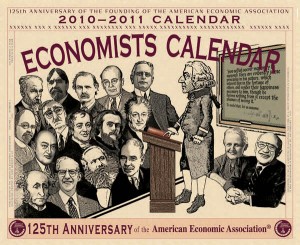In a week when we took on the issues of health care and immigration, our most contentious issue turned out to be the complexity of arithmetic. We also touched on some odd Christmas gifts and the solutions to some old puzzles.
I’ll be back, of course, on Monday. But to tide you over the weekend, you might want to check out the interview with John Allison, the former CEO of BB&T, which is part of the “What Went Wrong” series over at BigThink. Needless to say, I can find parts to disagree with, but overall I think it’s one of the most insightful interviews yet in this series. A choice quote:
If you want to really think about what happened in the housing crises, it was a government policy, through Freddie Mac and Fannie Mae and affordable housing policies, what they call the community reinvestment act, etc., that created a massive misallocation of credit. If the government gets into allocating credit over time it will make sure we aren’t as productive as we should be. So the government regulations usually in the end look like credit allocations usually to those that are politically favored at the expense of making sure credit is allocated to the most productive segments in the economy. So I think government regulation in the long term is almost always destructive.
 The Intelligent Design folk tell you that complexity requires a designer.
The Intelligent Design folk tell you that complexity requires a designer.

 One hundred years ago today,
One hundred years ago today,  James Hansen heads the NASA Goddard Institute for Space Studies. If you have a question about radiative transfer in planetary atmospheres, he’s your go-to guy. But if you have a question about economics—say, about the merits of cap-and-trade programs—you might want to consult a different sort of specialist. Hansen’s
James Hansen heads the NASA Goddard Institute for Space Studies. If you have a question about radiative transfer in planetary atmospheres, he’s your go-to guy. But if you have a question about economics—say, about the merits of cap-and-trade programs—you might want to consult a different sort of specialist. Hansen’s 



